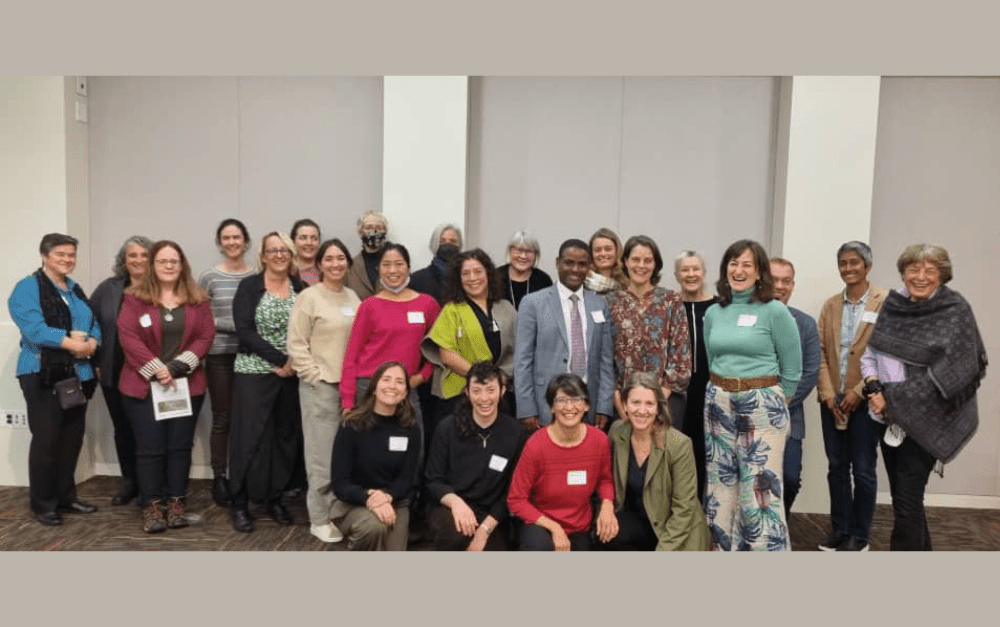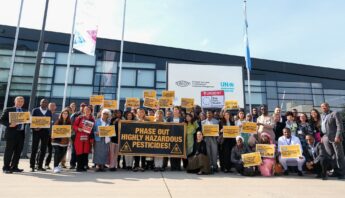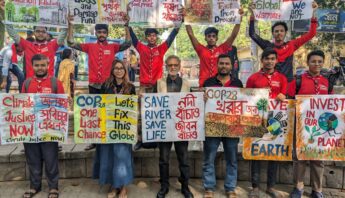Recently, a small contingent of the world’s leading thinkers and advocates for agroecology convened in Berkeley, California, to discuss the future of food and farming with PAN. Their goal was to explore strategies to promote alternatives to pesticides and push back against the agrochemical industries in the United States and around the world.
The power of coalition building
It’s hard to overstate the power of coalescing around a common goal. Gathering a couple dozen skilled advocates and critical thinkers in one room focused on the same issue is a potent recipe for progress. And PAN is no stranger to network building—it’s right there in our name.
Our work does not happen in a vacuum. We have strong connections with other branches of the PAN family (PAN International, PAN UK, PAN Asia Pacific, etc.). And, we collaborate with many like-minded organizations that do related work (Global Alliance for the Future of Food, HEAL Food Alliance, Midwest Farmers of Color Collective, Californians Food and Farming Network, Hawaii Alliance for Progressive Action, Iowa Farmers Union, and many more) and we consider them part of our PAN extended family.
By forging and maintaining these networks, PAN and partner organizations are able to support one another, ensure gaps are filled, redundancies are limited, and strategically plan our work. Coalition building is one of the most underestimated components of the work because nothing in the activism world happens without interactions between advocates. Coalitions are forged and reforged through tandem work, through give and take, through listening and learning, and through events like this one.
Discussing the future of food and farming
Newly established PAN Executive Director, Allison Davis, joined Zimyl Adler and Asha Sharma (both Organizing Co-Directors of PAN) and PAN Senior Scientist Marcia Ishii in welcoming several guests to the event. Among those attending were Tadesse Amera, Co-Coordinator of the newly launched PAN International Secretariat, Kyra Busch of CS Fund, Kat Gilje of Ceres Trust, Anna Lappé of Global Alliance for the Future of Food, and many other supporters and activists in food, farming, and climate justice.
The afternoon at the David Brower Center in Berkeley began with introductions from Kyra and Anna. They shared the work of climate funders who aim to reduce gas and methane emissions, and explained how their work has sparked an interest in agroecology because of the solutions it offers.
CS Fund is a private family foundation that, along with its sister foundation Warsh-Mott Legacy, has made over $90 million in grants to address a diverse range of organizations working in various sectors. Ceres Trust has provided grants that support healthy and resilient farms, forests, communities, and the ecosystems upon which we all depend. Global Alliance for the Future of Food is a strategic alliance of philanthropic foundations which collaborate on bold action across the globe to transform food systems to address their impacts on climate change and food security.
Tadesse then spoke about the global agreement to phase out Highly Hazardous Pesticides (HHPs) at the most recent ICCM (International Conference on Chemicals Management). The negotiations required to reach this agreement were incredibly intense and included a 20+ hour marathon session towards the end of the conference. He also reminded the attendees that the real work must now begin in order to capitalize on this interest and ensure that member states follow through.
Dr. Tadessa Amera holds degrees in Sanitary Sciences, Environmental Health, and a PhD in Environmental Communication. He served for seven years in the Ministry of Health of Ethiopia, and has worked for more than 15 years in civil society organizations. His current position as Executive Director of PAN-Ethiopia provides him with a platform where he pioneers agroecology to eliminate HHP use in cotton cultivation. He is also the Co-Chair of the International Pollutants Elimination Network (IPEN) which works to eradicate the world’s most harmful substances for a toxics-free future.
Allison was given the opportunity to share an overview of PAN’s work in North America and its connections to global initiatives. She emphasized our momentum in California and Minnesota, and the importance of riding the wave of renewed interest in agroecology and regenerative agriculture.
Finally, Kat gave a call to action to everyone in attendance. She encouraged attendees to find ways to creatively support this work. She reminded us that community building is a critical component of this work. Spaces like this provide opportunities for PAN to bring new thought partners to the table to learn about each other’s work. PAN is grateful for the opportunity to meet with CS Fund, Ceres Trust, and Global Alliance for the Future of Food, and appreciates all that these partners do to support the sustainability of food and farming.







